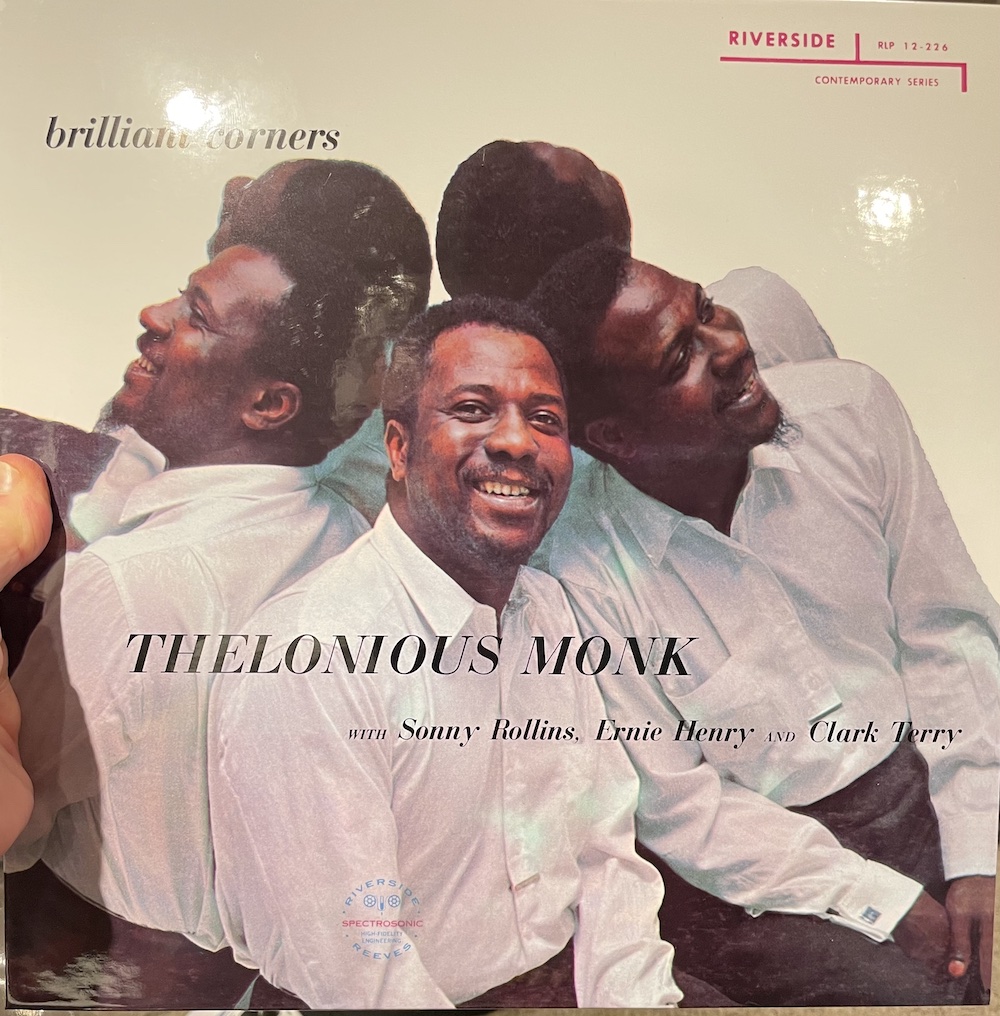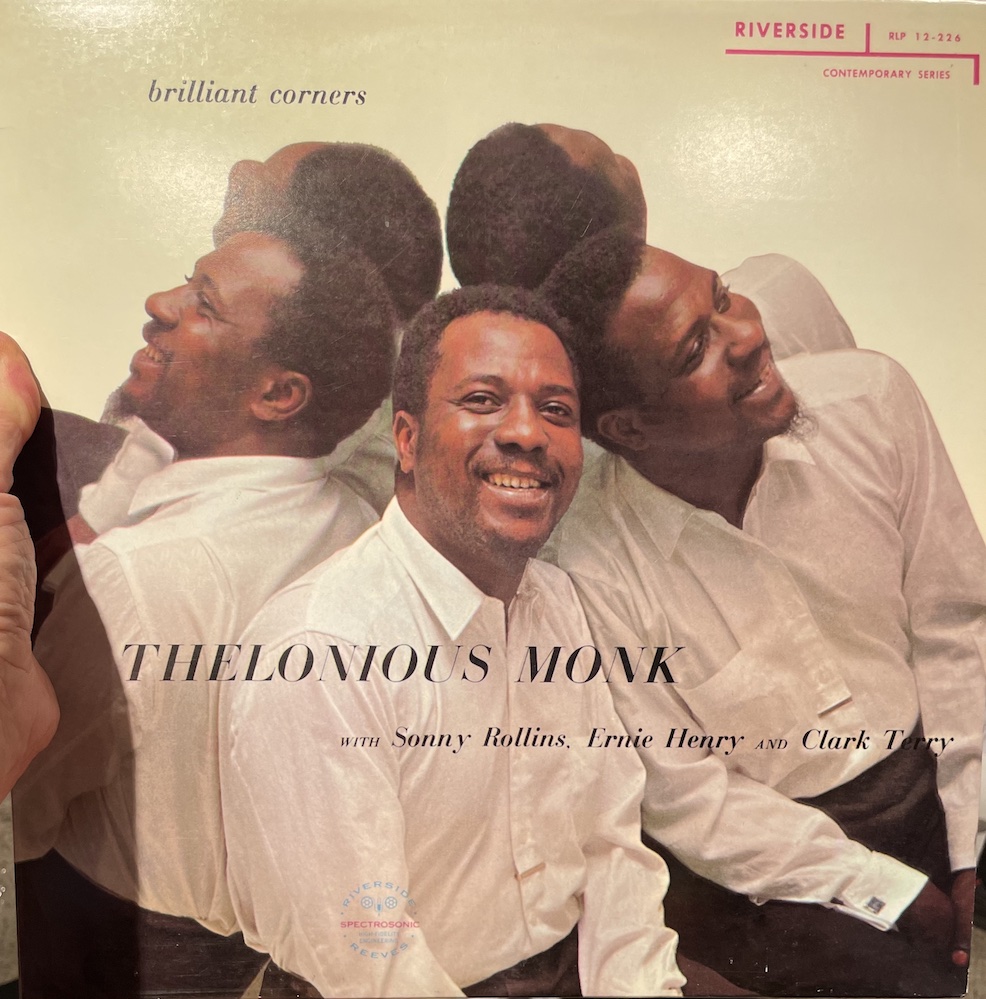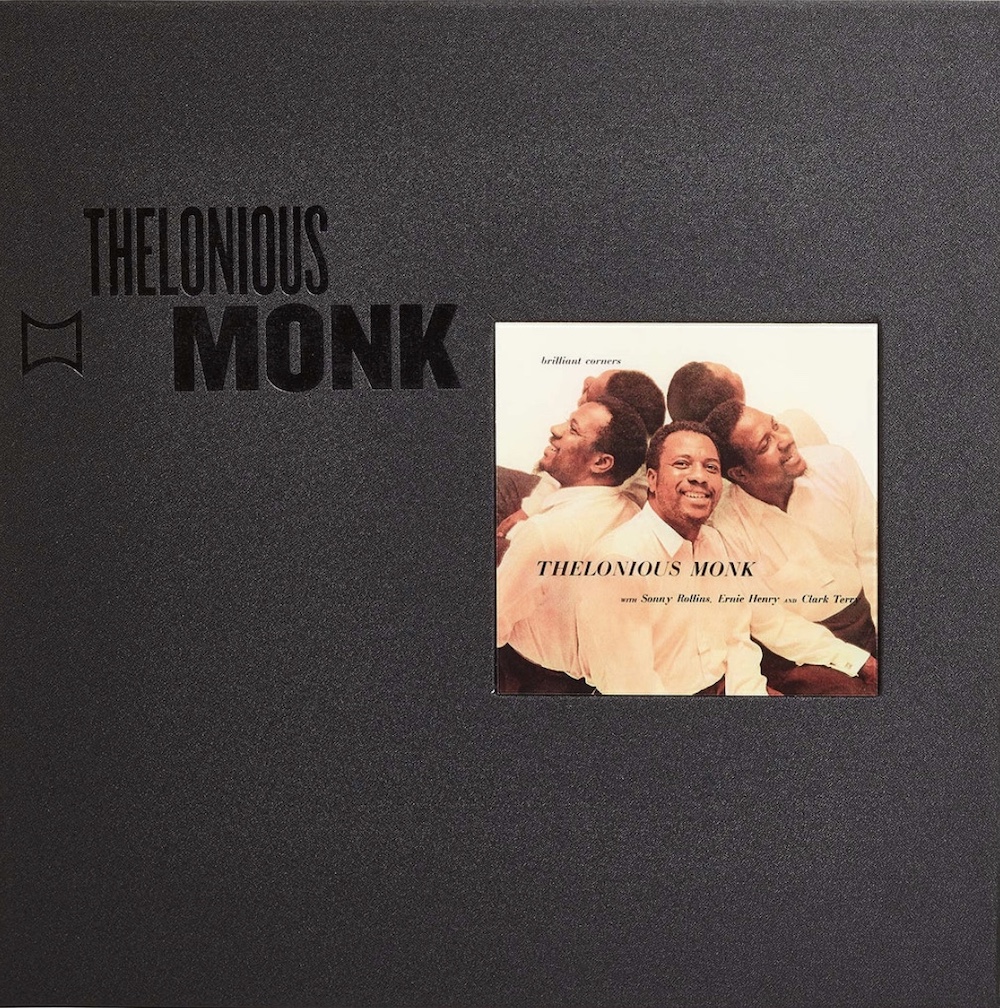Craft Does the "One Step" With Monk
small batch "Brilliant Corners" limited to 4000 gives more buyers a chance to get one
It could be a violent musical shock for a young jazz enthusiast in the early 1960s to discover 1957's "brilliant corners" after being introduced to Thelonious Monk on one of his later Columbia albums like 1963's "Criss-Cross". I speak from personal experience.
I'd bought Criss-Cross when it was first released. It was my first Monk album. I knew nothing about Monk but I liked his name. I thought it and Monk were pretty wild. The record was rock'n'roll to me in the Frankie Avalon/Bobby Rydell era just before The Beatles and Stones broke in America.
Riverside Records went bankrupt in July, 1964. In September when I got to Cornell University and hit the campus store to buy textbooks I hit the record department and found most if not the entire Riverside catalog on sale for $1.98 each. I bought what I could afford including a 'stereo' copy of brilliant corners. I kept returning to the campus store buying more as I could, but what i should have done was get a job in the cafeteria so I could own the entire catalog. Oh, well.

Those Dymo labels are a bitch to remove but back then it was to protect from record theft. Fortunately though, this recording never was in stereo, and other than calling it "stereo" it hasn't been electronically reprocessed or messed with, but the title tune sure did mess with my head.
This record made Criss-Cross sound tame and "commercial" though the well-rehearsed quartet was on fire and Rouse, Ore and Dunlop were and are still exciting to listen to backing Monk.
Hearing the title track for the first time made me happy to have had the Criss-Cross prep. The violent shock turned to a combination of laughter and admiration listening to this group work through a nearly impossible to play tune. Sonny Rollins was new to me and made a huge impression right there of course!
As Ashley Kahn points out in his as usual excellent annotation for this $109 Craft "Small Batch" edition, the albums' title tune took 25 "attempts" (only a few were complete takes). The final version we all know and love was edited together using various takes—partly a result of their having been no rehearsals (though according to Kahn Monk and Rollins did rehearse in Monk's apartment).
The excellent, you could say sexy Craft "Small Batch" packaging remains unchanged so I'm not going to again describe it, but what's with the orange album cover art?
 ERC got it almost correct, catching the slight blue tint in the shadows of Monk's head you can see in the "stereo" Riverside, if just a bit too bluish:
ERC got it almost correct, catching the slight blue tint in the shadows of Monk's head you can see in the "stereo" Riverside, if just a bit too bluish:
 Analogue Productions nailed it on the double 45 from 2002 though it misses that bit of blue (if it was even on the original original, which the 'stereo' edition is not):
Analogue Productions nailed it on the double 45 from 2002 though it misses that bit of blue (if it was even on the original original, which the 'stereo' edition is not):
 The Analogue Productions 1998 box set cover got it slightly on the orange side:
The Analogue Productions 1998 box set cover got it slightly on the orange side:
 All of those variations, other than the "Small Batch" cover are acceptable in the real world. Why does a $109 version end up with the least accurate cover art colors? Inexplicable. Either someone didn't do their homework or someone didn't care.
All of those variations, other than the "Small Batch" cover are acceptable in the real world. Why does a $109 version end up with the least accurate cover art colors? Inexplicable. Either someone didn't do their homework or someone didn't care.
If you think I sat through all of these brilliant corner versions to compare the sound, you'd be correct! I did! This is such an easy and enjoyable record to repeatedly listen to. Every play yields nuances and pleasures.
All of these versions sounded fine and surprisingly similar to one another with the newer ones pressed on better and quieter vinyl pushing the music further into the room out of the black background. The Craft "One Step" sounded best, especially in terms of dynamic contrasts and overall clarity. The price paid for that is you better hear the occasional tape drop outs.
Nonetheless, I bet some listeners might prefer the "stereo" edition, which has a slightly fatter lower mid bass that gives Max Roach's drum kit greater "wallop". And probably, as with the Miles "One Step", where the hard, somewhat harsh but accurately reproduced muted trumpet "offended" lovers of the noisy, somewhat compressed Prestige original , some will find this "One Step" a bit "in your face", but not I!
While the Neotech VR900 vinyl compound can sometimes sound soft, here it does not. but it surely is dead quiet. The quiet further expresses the skilled front to back layering in Jack Higgins' live mix. The celeste Monk plays with his right hand while playing piano with his left definitely sounds best on this "One Step". Likewise, Monk's solo piano on "I Surrender Dear" has the most profound and pleasing sustain—though again, none of these editions are less than a seriously pleasant listen and each has its minor pleasing embellishments. Also, on "Bemsha Swing" from the second recording session, where the sound is quite different and Roach's drum kit is pushed further back on the soundstage, the NeoTech VR900's quiet (plus probably the "One Step" process), proves its worth. You really catch all of what Roach is doing.
My conclusion: other than the inexplicably poor cover art reproduction, this is a recording worthy of a "Small Batch" One-Step and Bernie Grundman did his usually great mastering job.









































.png)








